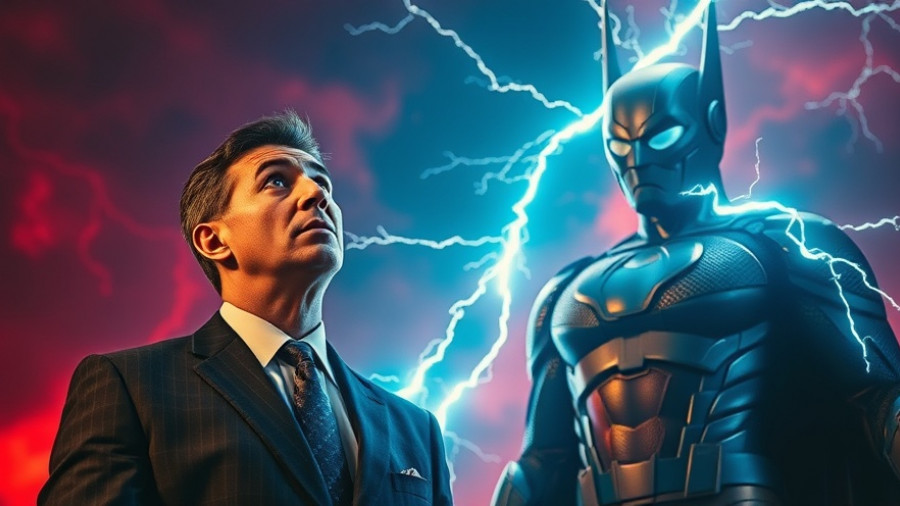
Taika Waititi: A Brilliant Rise and Tumultuous Fall
Taika Waititi, a director known for his unique flair in blending comedy and drama, has had quite the rollercoaster ride through Hollywood. His ascent is a tale of immense talent colliding with unchecked ego, and it serves as a cautionary narrative about how quickly the bright lights of success can dim. Born in New Zealand to a culturally diverse family in 1975, Waititi’s childhood was marked by his parents’ divorce, a scenario that would later intertwine with themes of family and identity in his films.
In 'Crash And Burn - The Taika Waititi Story,' the video dissects the highs and lows of Waititi's career, prompting us to explore the deeper implications of unchecked artistic freedom.
The Breakthrough: Crafting a Unique Voice
After gaining attention for his short film, Two Cars One Night, which earned him an Academy Award nomination, Waititi captured audiences with his feature films Boy and What We Do in the Shadows. These movies highlighted his ability to meld humor with heartfelt storytelling. His skill became a hallmark of his style, resonating with fans and critics alike.
When Marvel approached him to revitalize Thor, he delivered a fresh perspective with Thor: Ragnarok, a colorful, irreverent take that broke the mold of traditional superhero films. The success of Ragnarok not only solidified his reputation but also made him a darling of the industry, leading many to believe he could do no wrong.
The Fall: Unchecked Creativity and Hubris
However, with great power came great ego. By the time Thor: Love and Thunder hit theaters, the unchecked creative freedom that had previously served him well morphed into a chaotic narrative that left viewers scratching their heads. The film became known for its over-the-top humor and lack of focus. Critics and fans alike lambasted the movie, stating that it felt disjointed and amateurish, an indication that too much creative liberty can be a double-edged sword.
Waititi's infamous comments downplaying fan criticism didn't help his case. As he became the target of disappointment, his missteps revealed a troubling reality—an artist overwhelmed by success becoming a caricature of their earlier self. The pressures of high expectations seemed to stifle the very creativity that had propelled him to stardom.
Lessons Learned: The Price of Not Taking Failure Seriously
While Thor: Love and Thunder was ultimately still a financial success, it paves the way for necessary reflection. Every artist, regardless of their success, must ground themselves with humility, balancing creativity with discipline. Frequently, the industry tends to lionize figures like Waititi, making their eventual stumbles all the more public and dramatic.
After feasting on success, Taika seemed to lose sight of what made him resonate with audiences—genuine storytelling over flashy gimmicks. Now, with less prestigious projects and his creative direction called into question, one has to ponder how he will navigate this new chapter of his career.
Final Thoughts on Taika Waititi's Future
As Waititi tries to reclaim his footing amid the fallout of Love and Thunder, the question remains: will he find the balance necessary to rise once again? This saga serves as a valuable reminder to all artists that fame can be fleeting, and humility is crucial to longevity in the industry. As we look into the future, it will be interesting to see what path Taika Waititi carves out next.
 Add Row
Add Row  Add
Add 




Write A Comment